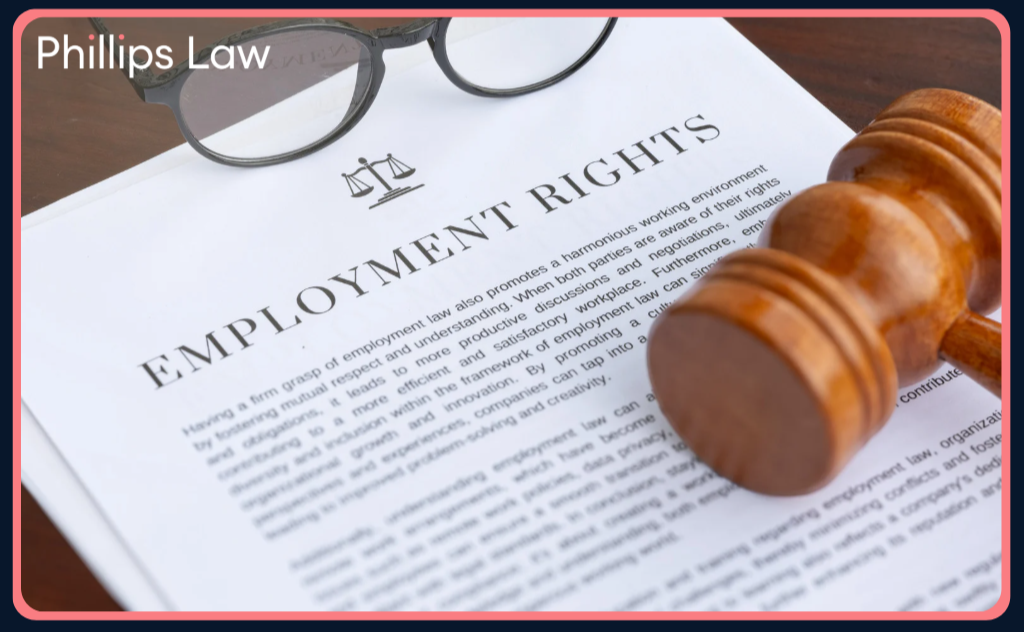
If you have been dismissed by an employer without good reason or if you think your employer has failed to follow their procedures, you may have an unfair dismissal claim.
Our Employment Solicitors and Barristers provide a clear and objective assessment of your potential claim so you can make an informed decision on whether to bring an unfair dismissal claim. Taking early independent legal advice can help you decide what action is in your best interests. Our Employment Solicitors and Barristers will support and guide you through any settlement negotiations or Employment Tribunal proceedings.
Get in contact today
Our highly experienced solicitors will provide expert advice and assist you. So that we can deal with your enquiry as quickly as possible, please fill out the form below or email us at [email protected].
Alternatively, you can call us for an initial discussion on 01256 854626.
To bring a claim for unfair dismissal the general rule is that you need to have been in employment for 2 years to have the protection against unfair dismissal provided by the Employment Rights Act 1996. It is worth getting advice quickly on the your dismissal though as there are exceptions. For example, if your case falls within the category of an automatically unfair dismissal. In those circumstances, and there are 21 of them, you do not need to have been employed for 2 years to claim unfair dismissal.
Examples of automatically unfair dismissals include:
- Asserting certain statutory right
- Dismissal due to a reason connected with the assertion of rights under the National Minimum Wage Act 1996.
- Dismissal due to a maternity-related reason or a reason relating to leave for family reasons Trade union activities and involvement
- Dismissal due to the making of a protected disclosure (whistleblowing)
- Health & Safety dismissal
- Performing certain duties in relation to TUPE
Automatically unfair dismissal shifts the burden of proof to the employer, to prove that the dismissal was a fair one.
As stated above the general rule is that unless you fall within one of the exceptions, if you wish to claim that you have been unfairly dismissed you will need to have been continuously employed for 2 years and will have to prove that your dismissal was unfair.
Claims for unfair dismissal include:
- Dismissal without a fair reason
- Performance related dismissals which are disputed
- Conduct dismissals which are disputed
- Capability dismissals which are disputed
- Unfair selection for redundancy
- Unreasonable conduct of employer
- Failure of employer to follow proper procedures
- Constructive and unfair dismissal due to a fundamental breach of conduct
- Failure to renew fixed term and temporary contracts after requisite length of service
An unfair dismissal claim must be presented to the Employment Tribunal Service within 3 months of the effective date of termination of employment (subject to any extension of time during the requirement for ACAS Early Conciliation or upon its conclusion). The deadline for making a claim is strict, although it can sometimes be extended if there are genuine exceptional circumstances.
It is always recommended that you take independent legal advice at the earliest possible time, preferably before starting ACAS Early Conciliation (which is a requirement before you can issue a claim in the Employment Tribunal) and certainly before issuing a claim in the Employment Tribunal.
Constructive Dismissal
If you feel that you have been treated so badly by your employer and they have breached your contract of employment to such an extent that you have no option but to resign then you claim would be for constructive unfair dismissal. Our Employment Solicitors and Barristers would advise employees in this position to contact us for advice before resigning as negotiating a settlement agreement and amicable exit will invariably be much less stressful for the employee and often more lucrative than having to bring a claim.
Remedies for Unfair Dismissal
If it is established that you were unfairly dismissed from your employment you can apply for:
- An order for compensation
- An order for re-engagement – barely ever made
- An order for reinstatement – barely ever made
Settlement Agreements for Unfair Dismissal
You may choose to resolve your unfair dismissal dispute with your former employer by negotiating a Settlement Agreement rather than taking your employer to an Employment Tribunal. A settlement can reduce the time, expense and stress of a claim, but it is important to take expert legal advice on the settlement proposals and the wording of the Settlement Agreement. We can also seek to negotiate your settlement agreement for you
Our Fees
Where possible we will offer a fixed fee, so you will know what the costs are from the start. For more complex or uncertain projects, we will provide you with an estimate of the likely fees involved and keep you updated throughout the matter.
How to get in contact
Our Employment Law Solicitors are on hand to provide expert advice and assist you wherever you are based. Please call us for a no-obligation, initial discussion on 01256 460830 or email [email protected].
Our offices are based in Basingstoke and we assist clients across the country.
Please call us or email and we’ll get back to you as soon as possible.

We aim to keep legal jargon to a minimum and guide you through the process in a manner that is easy to understand.
Our highly-skilled solicitors offer tailored, strategic solutions to even the most complex matters, ensuring you receive the guidance and support you need.
We will be by your side throughout every stage of the process and will provide you with regular updates and advice along the way.
We communicate thoroughly with you from the outset to ensure that we fully understand your individual needs. This allows us to accurately quote for your matter leaving you without any unexpected surprises and fees further down the line.
We provide our clients with a concise and transparent breakdown of costs from the outset of the matter and throughout any subsequent stages. This enables you to build faith and trust in us early on to form a lasting relationship.


We are delighted to announce that Phillips Law is the regional sponsor of the Knight Frank Schools Triathlon, supporting both the Charterhouse and Marlborough events. The Schools Triath ...
More
What farming families and business owners need to know If you own a farm, land, or a family business, you will have undoubtedly heard that inheritance tax (IHT) rules are changing. Whil ...
More
We are about to see a great wave of Employment Law changes following the Employment Rights Act 2025 becoming law in December. We will use these updates to keep you abreast of the change ...
More
As we look back on a busy and notable January at Phillips Law, we wanted to share a round-up of recent milestones, insights, and community moments from across the firm. Phillips Law cel ...
More
A guide to share incentivisation for employers and an update on the new employment rights. We have created a morning of practical insight that focuses on how you can reward and retain y ...
More
We are proud to announce Victoria’s Promise as Phillips Law’s Charity of the Year for 2026. Victoria’s Promise is a local charity providing dedicated support to young women aged 25 to 5 ...
More